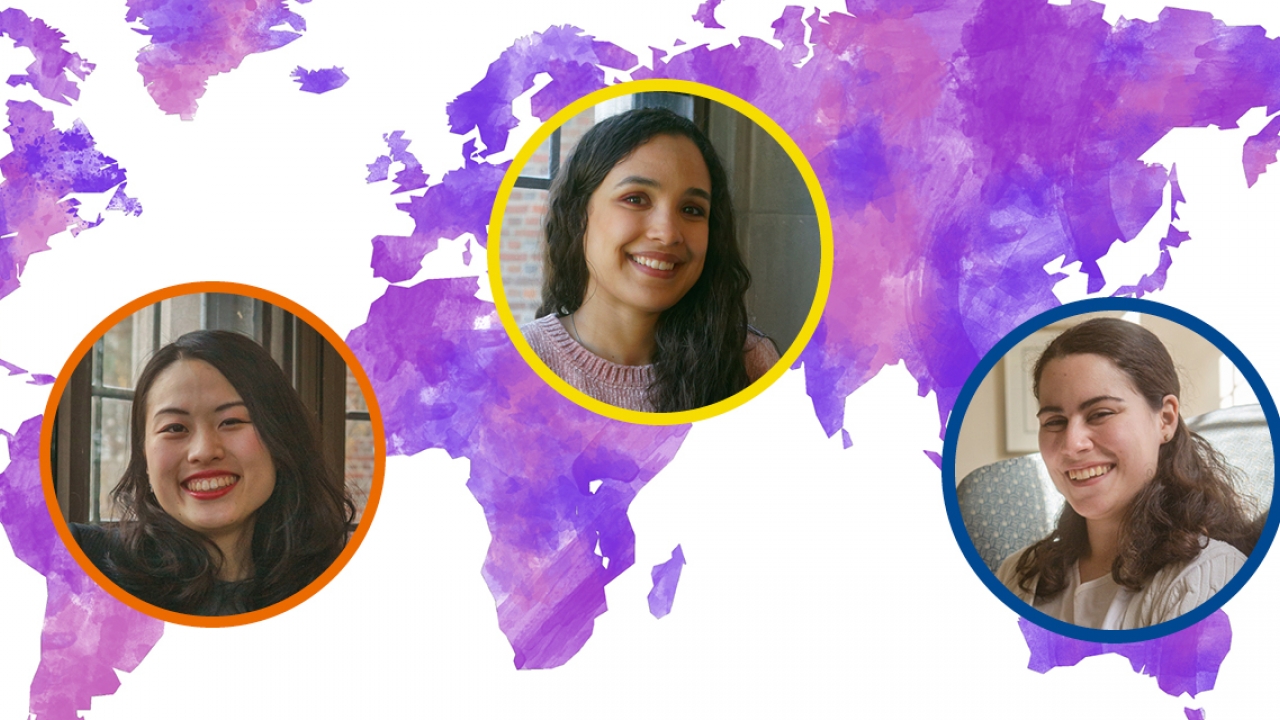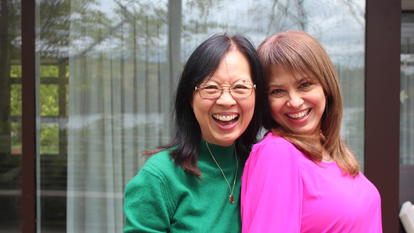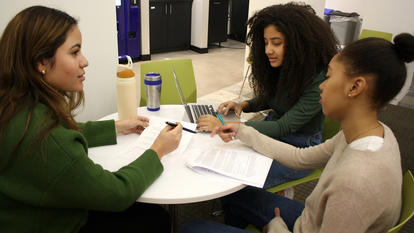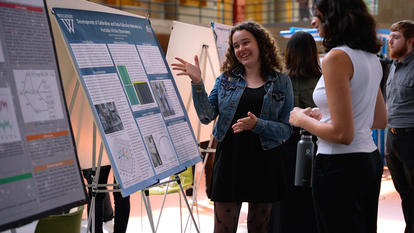This International Women’s Day, Meet Three Wellesley Students Working Toward Gender Equality

March 8 is International Women’s Day, and this year’s theme, #EachforEqual, is a nod to UN Women’s year-long celebration of the 25th anniversary of the Beijing Declaration and Platform for Action, launched at the 1995 UN Fourth World Conference on Women. A progressive roadmap for the empowerment of women and girls around the globe, I am Generation Equality: Realizing Women’s Rights embodies the memorable charge Hillary Rodham Clinton ’69 made at that historic gathering, when she announced to the world: “Human rights are women’s rights and women’s rights are human rights.”
In recognition of International Women’s Day, today and Monday we invite you to meet a few of Wellesley’s incredible students and alumnae around the world who are working for women’s rights and gender equality by challenging norms, celebrating diversity, and dispelling stereotypes.
Below, three students talk about women who have inspired them and what they hope the future holds for women and girls. They represent the new generation of women leaders and gender equality activists who are following in the footsteps of the visionaries who established the Beijing Platform.
Be sure to check back on Sunday for more stories about Wellesley's students and alumnae impacting equality on a global scale.
Kenza M’haimdat ’21 studies international relations and environmental studies with the goal of improving social and environmental justice in Morocco, her home country.
Makiko Miyazaki ’20 hails from Japan. She seeks to strengthen relations between the United States and Japan through policy making and diplomacy.
Sofia Ginard Ramirez ’20 wants to address gender and environmental injustice in Latin America. Ginard Ramirez was born in Spain and is half Mexican.
What issues are you most passionate about addressing?
Kenza M’haimdat: At Wellesley, I have learned about them importance of being a hard worker and high achiever without forgetting about my humanity, and this is why I am passionate about the power of love. Love brings people together in harmony with themselves and the universe and allows us to embrace differences, hardships, and hope. This concept of universal love pushes people outside of their comfort zone, by deliberately making them chose to be open to others without judgment and therefore forces them to be more authentic, empathetic, tolerant, and devoted to being their true selves.
Makiko Miyazaki: Strengthening the U.S. and Japan's political and grassroots ties. I want to contribute to both states as they navigate the changing geopolitical realities and to strengthen the people-to-people connections that form the backbone of such governmental relationship.
Sofia Ginard Ramirez: International development, with a particular focus on gender and environmental issues. Currently, I’m working on a project with MIT’s D-Lab helping women smallholder farmers in Guatemala develop a regional food system in “el corredor seco” [the dry corridor], an area heavily affected by climate change and food insecurity.
What achievements by other women inspire you? Who are your heroes?
KM: I believe that each person is a hero in their own way because being a hero does not require grandiose action or recognition. My heroes are my family, my friends, and mentors who never fail to impress me with their resilience, who keep teaching me every single day and who always have something to share
MM: I find the greatest inspiration from women around me: I have so many role models among my family, friends, and professors, all of whom are smart, talented, and kind. For public figures whom I find inspirational, I would say Madeleine Korbel Albright ’59; Michelle Obama; and Sadako Ogata, diplomat and first female head of the UN refugee agency.
SGR: My heroes are the women I have met who are working on solving development challenges. One of them, Libby McDonald, a development practitioner who focuses on gender equality and informal workers mainly in Latin America (where I am from), is a lecturer at MIT. I hope to do similar work in the future. She’s been a great mentor. Another hero would be Antonia De Meo ’89, who advances women’s rights and rule of law in conflict zones, and is currently working for the UN mission in Libya. I met her during my time in the Albright Institute.
What gender equality issues are most important to you?
KM: Women’s rights are a priority, and they must be embedded in national laws and policies. The unequal division of labor represents a considerable burden for women who undergo lots of negative externalities especially when it comes to having lower incomes, lower power in decision-making and higher domestic violence. Education empowers women to better know their rights and claim the voice they rightfully should.
MM: Long-held beliefs and attitudes that normalize gender inequality demand attention. Policies designed to empower women have little effect unless the society is prepared to enforce them. As someone from Japan, which is at the 121st place in global gender equality ranking despite having progressive gender policies on paper, I think we have a long way to go.
SGR: The overall lack of agency women have. Scholars like Amartya Sen and Martha Nussbaum would argue that this lack of agency leads to a lack of freedom in choices women make for themselves and their families on how to live their lives.
What do you want women to achieve in your lifetime?
KM: Access to education must increase. Education allows women to claim their own destiny and determine their own worth and value.
MM: I want women to have more agency over their lives and not face barriers such as unequal pay, glass ceilings, or gender stereotypes. Women should be able to reach their full potential.
SGR: I would want women to achieve the UN’s Sustainable Development Goals. I want to see a world where no one is living in poverty or is denied basic human rights. I want to see more women decision-makers, more women development practitioners, more women in the private sector who want to make a difference.
Pictured L to R: Makiko Miyazaki ’20, Kenza M’haimdat ’21, Sofia Ginard Ramirez ’20



